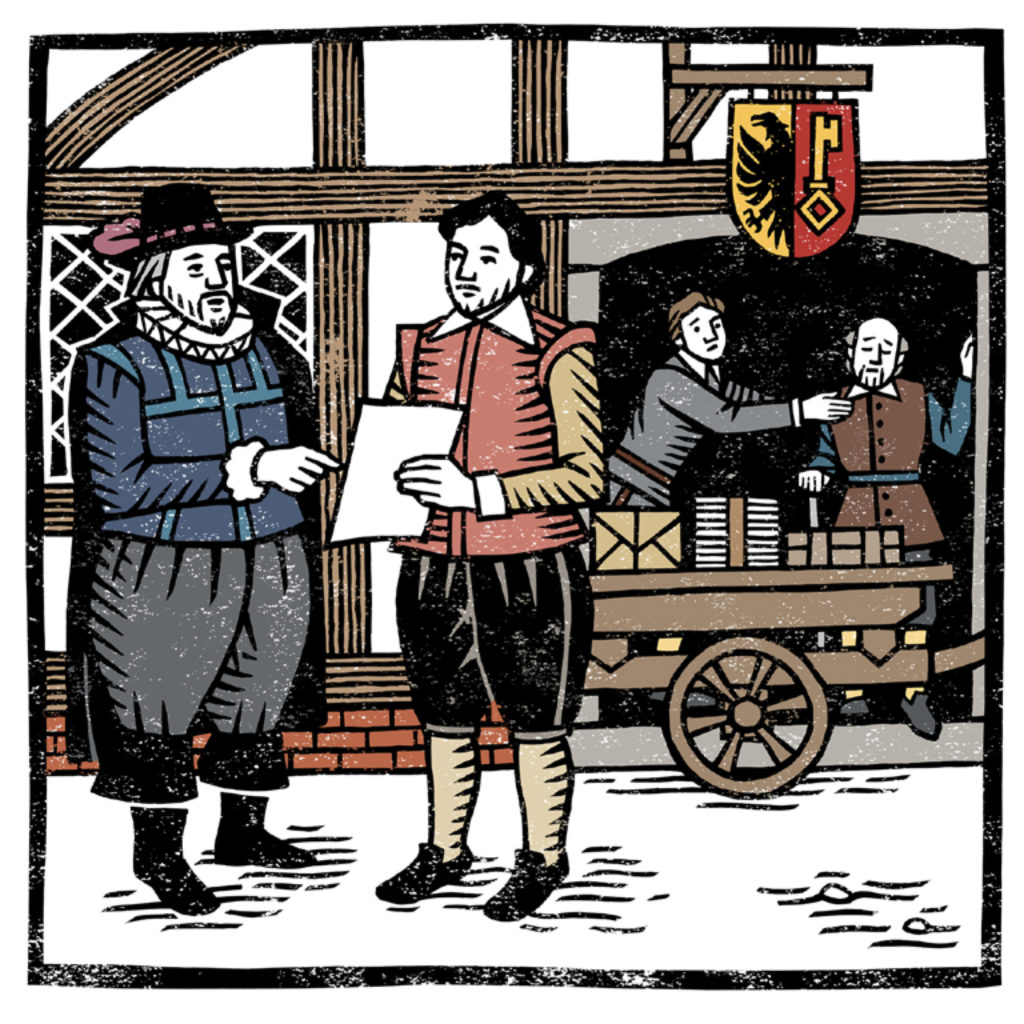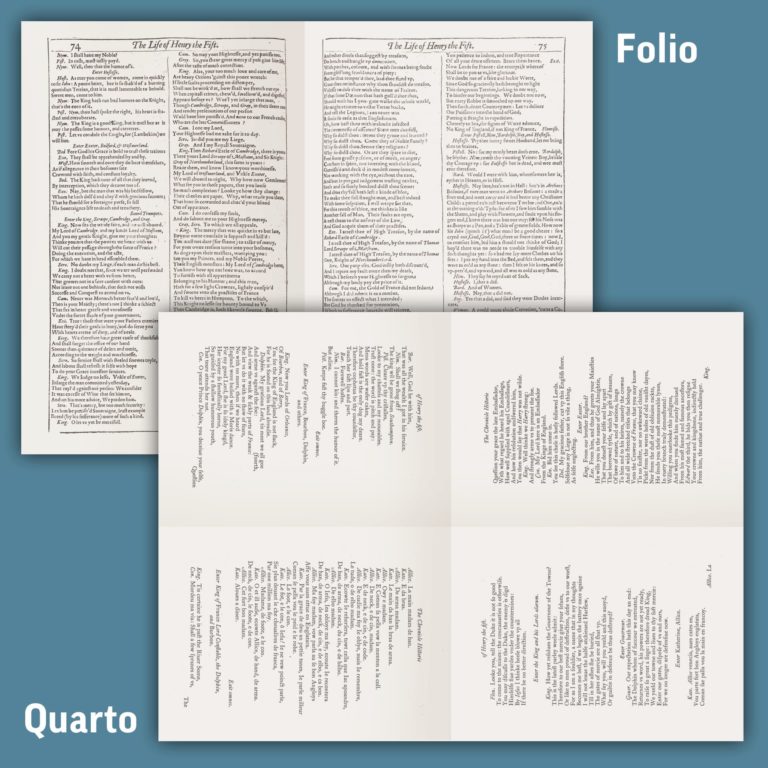
‘rashness in the enterprise, and fear of the success’
Publishing the First Folio was an ambitious and risky project. It needed good business sense.
The investment from bookseller and trader Edward Blount, and the printing expertise of Isaac Jaggard – and his blind father William – made the book possible.
Behind the scenes
Heminge and Condell needed investment from publishers and the technical skills of printers to achieve the First Folio. Edward Blount was a well-educated bookseller and a shrewd international businessman. He knew what his customers wanted. William Jaggard owned a successful London printing shop, at the sign of the Half-Eagle and Key. His eyesight had failed some time before, so the shop was managed by his son Isaac. Together, Blount and Isaac Jaggard became the main publishers involved in harnessing Shakespeare’s plays together in print, and their names both appear on the title-page of the First Folio.
Some of Shakespeare’s plays had been printed before: individually in small books called ‘quartos’. They often recorded the plays in different versions, because of transmission error or script revisions. Permission from the publishers of the quartos was required to include those plays in the Folio: two of these, William Aspley (whose rights included Much Ado About Nothing) and James Smithweeke (Hamlet and Romeo and Juliet), have their names printed in the last page.
We don’t know the business deals made. Blount probably had the most cash to invest. William Jaggard supplied the workforce at his printing shop. His son Isaac could offer this at a favourable price in return for a profit-share. Some publishers of the quartos gave permission to reprint plays for a one-off payment. Aspley and Smithweeke may have asked for a profit-share. In return for their own share, Heminge and Condell edited the plays, and probably paid a fee to the King’s Men share-holders to use the company’s playscripts.
Their desire to make back their money is clear. In the introduction to the First Folio, they plead with customers to “buy it first… whatever you do, buy.”
‘Folio’ means a book made from sheets of paper that are folded once, with two pages of text printed on each side. ‘Quarto’ means that each sheet is folded twice, with four smaller pages printed on each side (hence a Quarter/Quarto of a sheet for one page of the book). Shakespeare’s ‘First Folio’ is so-called because it was the first time his work was printed in this format.




